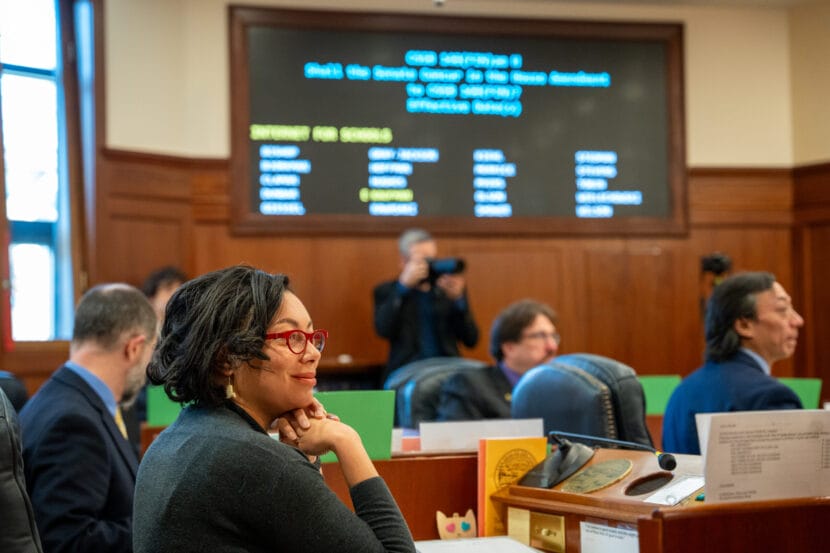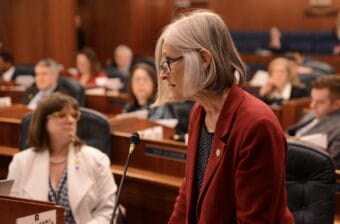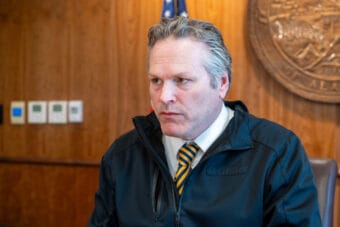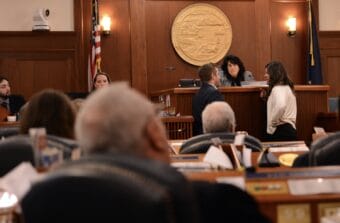
Gov. Mike Dunleavy cast doubt on the future of a bill that would boost state education funding and implement other reforms on Monday, shortly after the Senate sent the bill to his desk.
The bill would increase the base per-student state funding to school districts by $680, the first substantial increase since 2016. The bill would also provide new support to charter and correspondence schools and offer funding to help young students struggling to read.
In a social media post on Monday, Dunleavy said the bill “falls far short of improving outcomes for students.”
“It appears to do the same thing we have done for decades — just spend more money. It doesn’t support the Reads Act, it fails to improve access to public charter schools, and it does nothing to recruit and retain teachers. We can’t do the same thing over and over again and expect different results,” the governor’s post said. He did not say explicitly whether he would veto the bill.
The bill includes a new appeal process for charter schools and an education department position tasked with assisting districts with expanding charter schools. But it does not include a proposal endorsed by Dunleavy’s administration that would have created a new approval process for charter schools.
The bill also does not include a Dunleavy proposal that would have created bonuses of up to $15,000 for teachers. Instead, the bill has non-binding language instructing school districts to spend their increased funding on salaries and retention bonuses for teachers.
The bonuses and charter school approval reforms were included in an earlier version of the bill that failed in a 20-20 House vote.
Dunleavy has 15 days, excluding Sundays, to either sign or veto the bill once it is formally transmitted to him. Otherwise, it becomes law without his signature.
The Senate vote was 18-1 with only Sen. Mike Shower, R-Wasilla, voting no. Senate President Gary Stevens, R-Kodiak, said immediately after the vote that he was glad to see lawmakers working together to address the state’s struggling schools.
“I think we’ve made major progress, and I’m really proud of the fact that this House sent us a bill that we could agree to, and it’s out, it’s done,” Stevens said after the vote. “Now we’ll see what happens when the next shoe falls. ”
A veto, or a delay in signing, could jeopardize a provision increasing internet speeds at rural, low-income school districts, according to Sen. Löki Tobin, D-Anchorage. Tobin said the bill must take effect by Feb. 27 to avoid a year delay in the funding.
The bill passed the Legislature with overwhelming support from lawmakers. But it’s not clear they have the necessary 40 votes between the House and Senate to override a veto. Sen. Shelley Hughes, R-Palmer, voted for the bill on Monday but said she would not vote to override a veto.
U.S. Rep. Mary Peltola, D-Alaska, praised state lawmakers for their work on the bill in her address on Monday.
“I want to thank this body for tackling one of the biggest hurdles Alaskans face when deciding whether or not they can raise their families in Alaska last week, and then again today,” she said. “You will be showing that Alaskans are invested in our kids and their education.”


